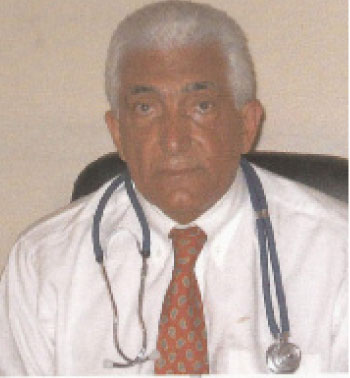
World Hepatitis Day is one of eight official global public health campaigns marked by the World Health Organization (WHO), along with World Health Day, World Blood Donor Day, World Immunization Week, World Tuberculosis Day, World No Tobacco Day, World Malaria Day and World AIDS Day.
Background
Approximately 500 million people worldwide are living with either hepatitis B or hepatitis C. If left untreated and unmanaged, hepatitis B or C can lead to advanced liver scarring (cirrhosis) and other complications, including liver cancer or liver failure. While many people worry more about contracting AIDS than hepatitis, the reality is that every year 1.5 million people worldwide die from either hepatitis B or C faster than they would from HIV/AIDS.
Hepatitis groups, patients and advocates worldwide take part in events on 28 July to mark the occasion. Notably in 2012, a Guinness World Record was created when 12,588 people from 20 countries did the Three Wise Monkeys actions on World Hepatitis Day to signify the willful ignorance of the disease.
What is Hepatitis
Hepatitis is swelling and inflammation of the liver.
Causes
Hepatitis can be caused by:
•Immune cells in the body attacking the liver
•Infections from viruses (such as hepatitis A, hepatitis B, or hepatitis C), bacteria, or parasites
•Liver damage from alcohol or poison
•Medicines, such as an overdose of acetaminophen
Liver disease can also be caused by inherited disorders such as cystic fibrosis or hemochromatosis, a condition that involves having too much iron in your body.
Other causes include Wilson’s disease, a disorder in which the body to retains too much copper.
Symptoms
Hepatitis may start and get better quickly. It may also become a long-term condition. In some cases, hepatitis may lead to liver damage, liver failure, or even liver cancer.
How severe hepatitis is depends on many factors, including the cause of the liver damage and any illnesses you have. Hepatitis A, for example, is usually short-term and does not lead to chronic liver problems.
The symptoms of hepatitis include:
•Pain or bloating in the belly area
•Dark urine and pale or clay-colours stools
•Fatigue
•Low fever
•Itching
•Jaundice (yellowing of the skin or eyes)
•Loss of appetite
•Nausea and vomiting
•Weight loss
You may not have symptoms when first infected with hepatitis B or C. You can still develop liver failure later. If you have any risk factors for either type of hepatitis, you should be tested often.
Exams and Tests
You will have a physical exam to look for:
•Enlarged and tender liver
•Fluid in the abdomen (ascites)
•Yellowing of the skin
Your doctor may order lab tests to diagnose and monitor your condition, including:
•Ultrasound of the abdomen
•Autoimmune blood markers
•Tests to diagnose Hepatitis A, B, or C
•Liver function tests
•Liver biopsy to check for liver damage
•Paracentesis (if fluid is in your abdomen)
Treatment
Your doctor will talk to you about treatment options. Treatments will vary, depending on the cause of your liver disease. You may need to eat a high-calorie diet if you are losing weight.
.Possible Complications
•Permanent liver damage, called cirrhosis
•Liver failure
•Liver cancer
When to Contact a Medical Professional
Seek care immediately if you:
•Have symptoms from too much acetaminophen or other medicines -- you may need to have your stomach pumped
•Vomit blood
•Have bloody or tarry stools
•Are confused or delirious
Go to hospital or clinic
•You have any symptoms of hepatitis or believe that you have been exposed to hepatitis A, B, or C.
•You cannot keep food down due to excessive vomiting. You may need to receive nutrition through a vein (intravenously).
•You feel sick and have travelled to Asia, Africa, South America, or Central America.
Prevention
Talk to your doctor about receiving a vaccine to prevent hepatitis A and hepatitis B.
Steps for preventing the spread of hepatitis B and C from one person to another include:
•Avoid sharing personal items, such as razors or toothbrushes.
•Do not share drug needles or other drug equipment (such as straws for snorting drugs).
•Clean blood spills with a mixture of 1 part household bleach to 9 parts water.
•Do not get tattoos or body piercings with instruments that have not been cleaned properly.
To reduce your risk of spreading or catching hepatitis A:
•Always wash your hands well after using the restroom, and when you come in contact with an infected person’s blood, stools, or other bodily fluid.
•Avoid unclean food and water.
What is hepatitis A?
Hepatitis* A is a virus, or infection, that causes liver disease and inflammation of the liver. Viruses can cause sickness. For example, the flu is caused by a virus. People can pass viruses to each other.
Inflammation is swelling that occurs when tissues of the body become injured or infected. Inflammation can cause organs to not work properly.
*See the Pronunciation Guide for tips on how to say the underlined words.
What is the liver?
The liver is an organ that does many important things. You cannot live without a liver.
Hepatitis A is a virus, or infection, that causes inflammation of the liver.
The liver
•removes harmful chemicals from your blood
•fights infection
•helps digest food
• stores nutrients and vitamins
•stores energy
Who gets hepatitis A?
Anyone can get hepatitis A, but those more likely to are people who
•travel to developing countries
•live with someone who currently has an active hepatitis A infection
•use illegal drugs, including no injection drugs
•have unprotected sex with an infected person
•provide child care
Also, men who have sex with men are more likely to get hepatitis A.
How could I get hepatitis A?
You could get hepatitis A through contact with an infected person’s stool. This contact could occur by
•eating food made by an infected person who didn’t wash his or her hands after using the bathroom
•drinking untreated water or eating food washed in untreated water
•placing a finger or object in your mouth that came into contact with an infected person’s stool
•having close personal contact with an infected person, such as through sex or caring for someone who is ill
You cannot get hepatitis A from
•being coughed or sneezed on by an infected person
•sitting next to an infected person
•hugging an infected person
A baby cannot get hepatitis A from breast milk.
What are the symptoms of hepatitis A?
Most people do not have any symptoms of hepatitis A. If symptoms of hepatitis A occur, they include
•feeling tired
•muscle soreness
•upset stomach
•fever
•loss of appetite
•stomach pain
•diarrhoea
•dark-yellow urine
•light-colours stools
•yellowish eyes and skin, called jaundice
Symptoms of hepatitis A can occur 2 to 7 weeks after coming into contact with the virus. Children younger than age 6 may have no symptoms. Older children and adults often get mild, flulike symptoms. See a doctor right away if you or a child in your care has symptoms of hepatitis A.
How is hepatitis A diagnosed?
A blood test will show if you have hepatitis A. Blood tests are done at a doctor’s office or outpatient facility. A blood sample is taken using a needle inserted into a vein in your arm or hand. The blood sample is sent to a lab to test for hepatitis A.
A blood test will show if you have hepatitis A.
How is hepatitis A treated?
Hepatitis A usually gets better in a few weeks without treatment. However, some people can have symptoms for up to 6 months. Your doctor may suggest medicines to help relieve your symptoms. Talk with your doctor before taking prescription and over-the-counter medicines.
See your doctor regularly to make sure your body has fully recovered. If symptoms persist after 6 months, then you should see your doctor again.
When you recover, your body will have learned to fight off a future hepatitis A infection. However, you can still get other kinds of hepatitis.
Hepatitis A usually gets better in a few weeks without treatment.
How can I avoid getting hepatitis A?
You can avoid getting hepatitis A by receiving the hepatitis A vaccine.
Vaccines are medicines that keep you from getting sick. Vaccines teach the body to attack specific viruses and infections. The hepatitis A vaccine teaches your body to attack the hepatitis A virus.
The hepatitis A vaccine is given in two shots. The second shot is given 6 to 12 months after the first shot. You should get both hepatitis A vaccine shots to be fully protected.
All children should be vaccinated between 12 and 23 months of age. Discuss the hepatitis A vaccine with your child’s doctor.
Adults at higher risk of getting hepatitis A and people with chronic liver disease should also be vaccinated.
If you are traveling to countries where hepatitis A is common, including Mexico, try to get both shots before you go. If you don’t have time to get both shots before you travel, get the first shot as soon as possible. Most people gain some protection within 2 weeks after the first shot.
You can also protect yourself and others from hepatitis A if you
•always wash your hands with warm, soapy water after using the toilet or changing diapers and before fixing food or eating
•use bottled water for drinking, making ice cubes, and washing fruits and vegetables when you are in a developing country
•tell your doctor and your dentist if you have hepatitis A
Always wash your hands with warm, soapy water after using the toilet or changing diapers and before fixing food or eating.
What should I do if I think I have been in contact with the hepatitis A virus?
See your doctor right away if you think you have been in contact with the hepatitis A virus. A dose of the hepatitis A vaccine or a medicine called hepatitis A immune globulin may protect you from getting sick if taken shortly after coming into contact with the hepatitis A virus.
Eating, Diet, and Nutrition
If you have hepatitis A, you should do things to take care of yourself, including eating a healthy diet. Avoid drinking alcohol, which can harm the liver. Talk with your doctor before taking vitamins and other supplements.
Points to Remember
•Hepatitis A is a virus, or infection, that causes inflammation of the liver.
•Anyone can get hepatitis A, but some people are more likely to than others.
•You could get hepatitis A through contact with an infected person’s stool.
•Most people do not have any symptoms of hepatitis A.
•Children younger than age 6 may have no symptoms of hepatitis A.
•Hepatitis A may cause mild, flulike symptoms in older children and adults.
•See a doctor right away if you or a child in your care has symptoms of hepatitis A.
•A blood test will show if you have hepatitis A.
•Hepatitis A usually gets better in a few weeks without treatment.
•You can avoid getting hepatitis A by receiving the hepatitis A vaccine.
•Tell your doctor and your dentist if you have hepatitis A.
•See your doctor right away if you think you have been in contact with the hepatitis A virus.
For further information visit MRC Liver Department,,orE- Mail azadehhassan@yahoo.co.uk, or text 002207774469/3774469
Author Dr Azadeh Senior Lecturer University of the Gambia, Senior Consultant in Obstetrics & Gynaecology
Read Other Articles In Article (Archive)

Yagana World Foundation boosts Bakoteh Upper & Lower Basic School
Nov 19, 2012, 10:22 AM
2nd Division relegated clubs to compete in regional league
Jan 16, 2015, 11:40 AM


